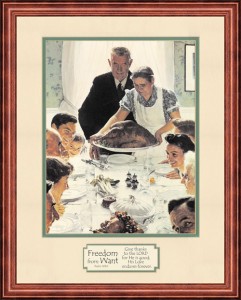Virtually every widow struggles with regret. She’s haunted by the many ways she could have been a better wife and thinks, “I should have… I wish… If only…”
When I think of my own marriage, one thing Nate modeled exceptionally well was his consistency in thanking me. There were other things in his life he struggled to be grateful for, but I wasn’t one of them. If I filled his drawer with clean underwear, he’d find me and let me know how much he appreciated it. If I brought his dry cleaning home, he’d thank me for taking such good care of him. And though I made simple dinners, he never ate one of them without voicing gratitude.
Some wives might have found this over-the-top, but it always felt good to me. My regret is not having done the same for him. I should have daily thanked him for battling it out at work. I could have mentioned his kindness each time he filled my car with gas or willingly picked up our children at odd hours.
Interestingly, I often had thankful thoughts toward Nate but over and over failed to transform those into audible words. In each case, then, the only one benefitting was me.
All of us can recall situations in which we liked what people did, what they said, or what they looked like, but didn’t deliver the compliment or word of appreciation. We thought it, but didn’t speak it out.
The biblical book of James says our tongues can be used for good or evil, to soothe or irritate. There’s a No Man’s Land in the middle, though, that he doesn’t mention, words in our heads that have the power to bless others but never make it to our tongues.
But we’re not left without instruction on this. God sees our wordless thoughts and says, “I the Lord search the heart and examine the mind, to reward each person according to their conduct, according to what their deeds deserve.” (Jeremiah 17:10)
He’s saying, “I’m looking for those affirmative thoughts you have toward others and will bless you if you voice them. When you speak goodness over someone else, I classify that as a deed worthy of reward. If you hold it in, you not only haven’t blessed others, you’ve also forfeited a blessing for yourself.”
Since I’ve repeatedly fallen short on this, my response to God’s statement is to admit failure and ask for help. Hopefully he’ll pluck thankful words from my brain and set them on my tongue, moving in with his supernatural controls. Because he is able when I am not, I know it can be done.
And while I’m trying to remember to say good things to others, I can practice by verbalizing words of praise to God.
“All kinds of animals, birds, reptiles and sea creatures are being tamed and have been tamed by mankind, but no human being can tame the tongue.” (James 3:7,8)





